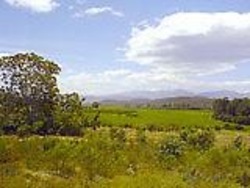International Relations and Security Network (ISN) | 4 October 2012
Large-scale foreign investments in the farmlands of the developing world have been branded as a new form of ‘imperialism’. However, our partners at the Kiel Institute suggest that if such investments are governed more effectively, land acquisitions can provide the developing world with positive opportunities.
In the following map, the Circle of Blue network charts the occurrence of ‘land grabs’ by country and sector from 2006 until the present date. Their findings demonstrate that while Europe and North America are by no means immune to this practice, the majority of land acquisitions are made in the developing world by states with growing populations, status and an ever increasing need for resources.
However, the jury is still out on whether such assertive land acquisition policies represent a new era of resource imperialism by outside actors eager to satisfy their domestic demand for food. Indeed, in Dealing with the Race for Agricultural Land, our partners at the Kiel Institute for the World Economy argue that land deals of this magnitude need to be judged on a case by case basis.
There does, however, appear to be a degree of consensus between analysts and policymakers on the need to ensure that all land acquisitions are governed properly. In The Principles for Responsible Agricultural Investment, for example, the World Bank and other organizations list seven rules that investors should follow when buying farmland in the developing world. Yet such guidelines have not prevented continued criticism of the terms and conditions that are often attached to land acquisitions.
In order to help you draw your own conclusions on the motivations and justifications that lie behind these acquisitions, today we present some of the key findings from Dealing with the Race for Agricultural Land. Over the next five tabs the authors identify the drivers of commercial cropland expansion; the opportunities and risks that land acquisition deals present to host countries; and how land deals could be improved to ensure that they offer tangible benefits to investors and local communities. A case study from Zambia and a conclusion completes the picture.















